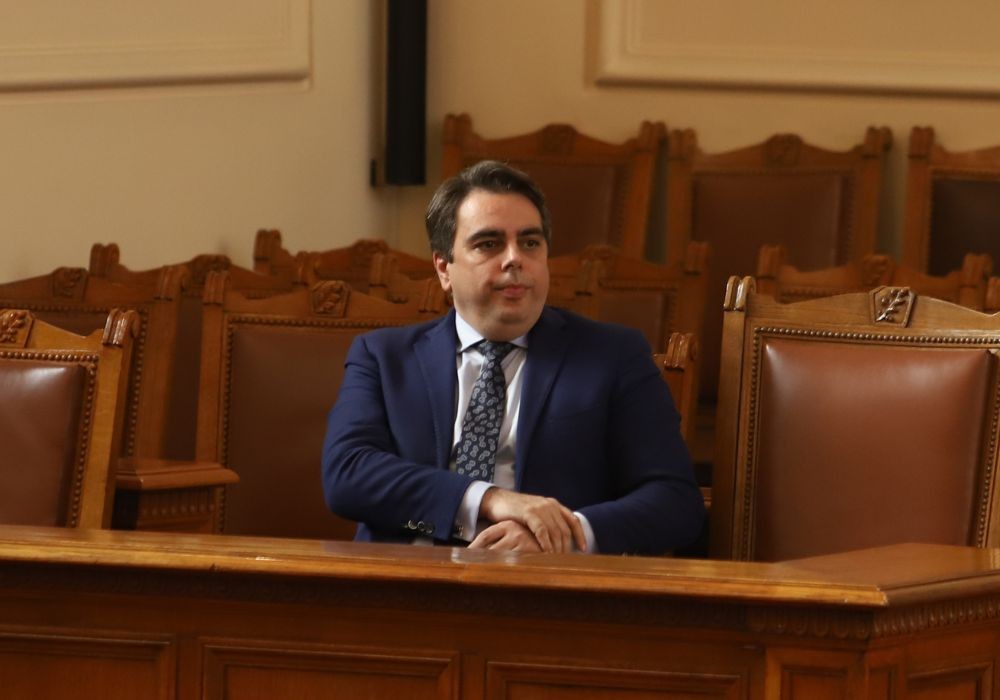Following two days of debates, Bulgaria’s lawmakers have finally adopted the amendment of the 2022 state budget. “The MPs exercised responsibility against the backdrop of a complicated political situation. It will be difficult, yet not impossible, to implement the state budget. We have adopted a series of anti-crises measures to help households and seniors. Businesses will also receive financial assistance to cope with the high prices of electricity”, outgoing Minister of Finance Assen Vassilev said after the adoption of the state budget revision.

As of July 1, drivers of vehicles with Bulgarian registration plates will be able to get a rebate of 13 Eurocents per liter on the pump price of A-95 gasoline, diesel without additives, liquefied petroleum gas (LPG) and natural gas, if they buy up to 50 liters. Pensions will increase by 10% in two steps- from July 1 and October 1. The maximum pension increases from EUR 766 to EUR 1,022.
The revenue side was increased with EUR 388 million to EUR 17.4 billion and the expenditure side was increased with EUR 300 million, from EUR 10.4 billion to EUR 10.7 billion. The government’s debt ceiling was increased from EUR 3.7 billion to EUR 5.3 billion due to expected revenues from value added tax and inflation. The amount of state guarantees for the state-owned energy companies Bulgargaz and Bulgartransgaz has also gone up.
No VAT will be levied on bread and flour. The measure will be in force until July 1, 2023.
The MPs have also approved the sum of EUR 603,000 for raising the remuneration of National Assembly staff, at the expense of savings. The lawmakers also approved additional funding to raise the salaries in various departments, including the Ministry of Interior, the education sphere, etc. The National Assembly has also increased tax reliefs for families with children. The taxable income of one of the parents will be reduced with EUR 300 on an annual basis for one underage child. For two underage children the reduction will be EUR 600.

Outgoing Minister of Finance Vassilev clarified that the MPs had approved an additional funding of EUR 388 million for anti-crisis measures. Initially, the government had proposed EUR 1 billion for anti-inflationary and anti-crisis policies.
“I very much hope that this budget will help all Bulgarians cope with the crisis and go through these difficult times a bit easier. On the one hand, this budget preserves the social component. On the other hand, it enables us to make the necessary social spending to help the most disadvantaged strata of society address the latest crises”, outgoing Finance Minister Vasilev noted.
Compiled by: Diana Tsankova
English version: Kostadin Atanasov
Photo: BGNESThe average price of apartments sold in Sofia in the third quarter of 2025 reached €2,310 per square metre , marking an annual increase of 25.5%, according to data from Bulgarian Properties. While new developments remain popular, limited supply and..
Natural gas prices in Bulgaria are set to fall by just over 4% in December , significantly higher than the previously forecast 1% drop, according to calculations by state-owned supplier Bulgargaz, reported BNR correspondent Yuliyana Kornazheva. This..
The Executive Board of the International Monetary Fund (IMF) has concluded the 2025 Article IV Consultation with Bulgaria. According to the IMF’s procedure for assessments and recommendations, domestic demand is driving a robust expansion of the..

+359 2 9336 661
